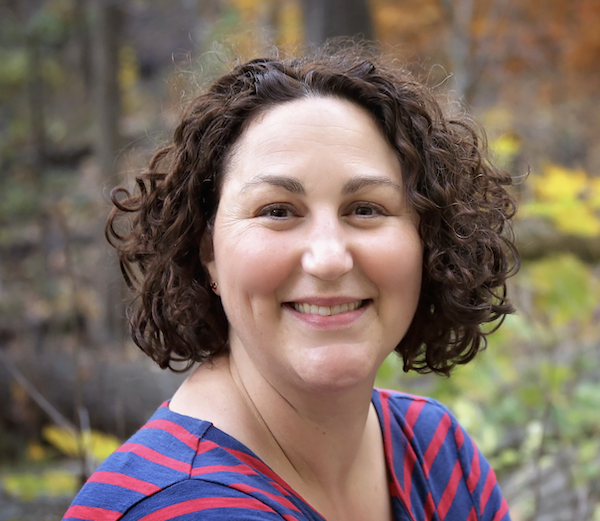Plus: A promising decline in teen alcohol use, and the effectiveness of Canada’s safer opioid supply programs
By Mark Mravic
Community is an essential element of long-term recovery wherever someone might find it—even on the internet. That’s the conclusion of researchers from the U.K. who analyzed the activity of members of a popular opioid recovery forum on Reddit over six years and found a correlation between participation in online communities and declines in episodes of relapse.
Also this week, the Monitoring the Future survey shows a two-decade drop in alcohol use among American high school seniors, and Canada’s foray into safer opioid supply programs offers another model for harm reduction.
From the Journal of Medical Internet Research:
Online Forums Can Reduce Opioid Relapse Risk
A fascinating paper from the University of Exeter in the U.K. reports that people in recovery from opioid use disorder (OUD) who participate in online forums—especially those unrelated to drug use—on the global discussion platform Reddit can build invaluable “social capital” that dramatically reduces the risk of relapse.
“[The findings] are in line with the view that social groups deliver health benefits and create resilience.”
—Elahe Naserianhanzaei, University of Exeter
Researchers examined posts from 457 anonymous members of the subreddit OpiatesRecovery, which offers peer support and information to those in remission from OUD. Tracking those members’ activities across all of Reddit over six years, they identified some 1,200 other subreddits in which those members regularly posted or commented, categorizing the forums as related to substance use, devoted to recovery support, or unrelated to either. According to the findings, the greater the number of non-drug-related online groups a recovering individual became a part of, the lower the risk that the individual would report an episode of opioid use over time. Indeed, the reduction was much as 5% for each subforum. “And this effect persisted when membership in recovery and substance use groups was also accounted for,” said co-researcher Elahe Naserianhanzaei, PhD. “This is in line with the view that social groups deliver health benefits and create resilience.”

Researchers noted several trends in the Reddit study. While engaging with recovery-devoted forums had benefits, there was a correlation between those who focused more narrowly on such sites, rather than a broad range of topics, and those at risk of opioid use during recovery. But the data also showed that participation in forums that focused on substance use did not in itself increase the risk of a relapse episode.
Noting the length of time covered, lead author Miriam Koschate-Reis, PhD, said the study provides indication “that a person’s remission journey needs to continue beyond the phase where they build recovery support group memberships and move towards group participation that is non-drug related. And these results indicate that online communities can help people to make that transition.”
From Alcoholism: Clinical and Experimental Research:
A Drop in Teen Alcohol Use
There’s some promising news on the teen substance use front for a change. A new study in Alcoholism: Clinical and Experimental Research reveals that drinking among older adolescents declined noticeably over the past two decades. Analyzing data for 38,000 12th-grade students from 2000 to 2020 in the National Institute on Drug Abuse’s Monitoring the Future survey, researchers found that the number of respondents reporting past-year alcohol use decreased from 38% to 28% over that span. In addition, those reporting using alcohol and cannabis at the same time at least once in a year dropped from 24% to 19%. The number of teens who used each substance at some point in the past year increased slightly, from 11% to 12%, while cannabis-only use more than doubled, from 2% to 5%.
The data showed differences based on gender and race. For female students, the decline in drinking was less pronounced, while cannabis use rose more quickly than for male students. Additionally, non-white students had lower rates of alcohol use and higher cannabis consumption.
While the declines are promising, the study notes that there is still room for improvement and reason for concern. “As one in five students reports simultaneously using both substances,” the authors say, “continued public health efforts to reduce teen alcohol and cannabis use, as well as interventions specifically aimed at female students, are important.” The authors further call for the development of strategies to understand and effectively address issues contributing to alcohol and cannabis use by female students and other vulnerable populations.
From the Canadian Medical Association Journal:
The Benefits of “Safer Opioid Supply” Programs
In the face of the mounting overdose crisis, several places in Canada have begun experimenting with safer opioid supply (SOS) programs. Sitting somewhere between medication for opioid use disorder (MOUD) and safe injection or supervised consumption sites, SOS programs provide prescription opioids—most often a daily take-home dose of immediate-release hydromorphone—to people at high risk of overdose as an alternative to using illicit and unregulated fentanyl. The programs are less clinical and strict than MOUD, offering more flexible eligibility, dosing conditions and client goals and, in some cases, better accessibility. SOS services are regularly accompanied by other health and social services, including medical and mental health care, HIV and hepatitis C treatment, access to social programs and counseling, and housing support.

To judge SOS’s effectiveness, a team of researchers looked at the program at the London (Ont.) InterCommunity Health Centre, which launched in 2016. Comparing 82 participants in the program to local residents with OUD who were not enrolled, the researchers saw a rapid and significant decrease in emergency room visits, hospitalizations (including those for bacterial infections associated with drug injection) and healthcare costs (beyond primary care and medication expenses). No participant in the program suffered an opioid-related death during the six-year period of the study.
“Both the improvements in health services usage and lack of negative outcomes detected among clients provide important reassurance about the safety of these programs,” said Gillian Kolla, PhD, in a release. “It is important to note that the London program also offers comprehensive primary care and social supports to safer supply clients, so it will be important for future research to examine the impact of different program elements on client outcomes.”
Top photo: John Schobrich














